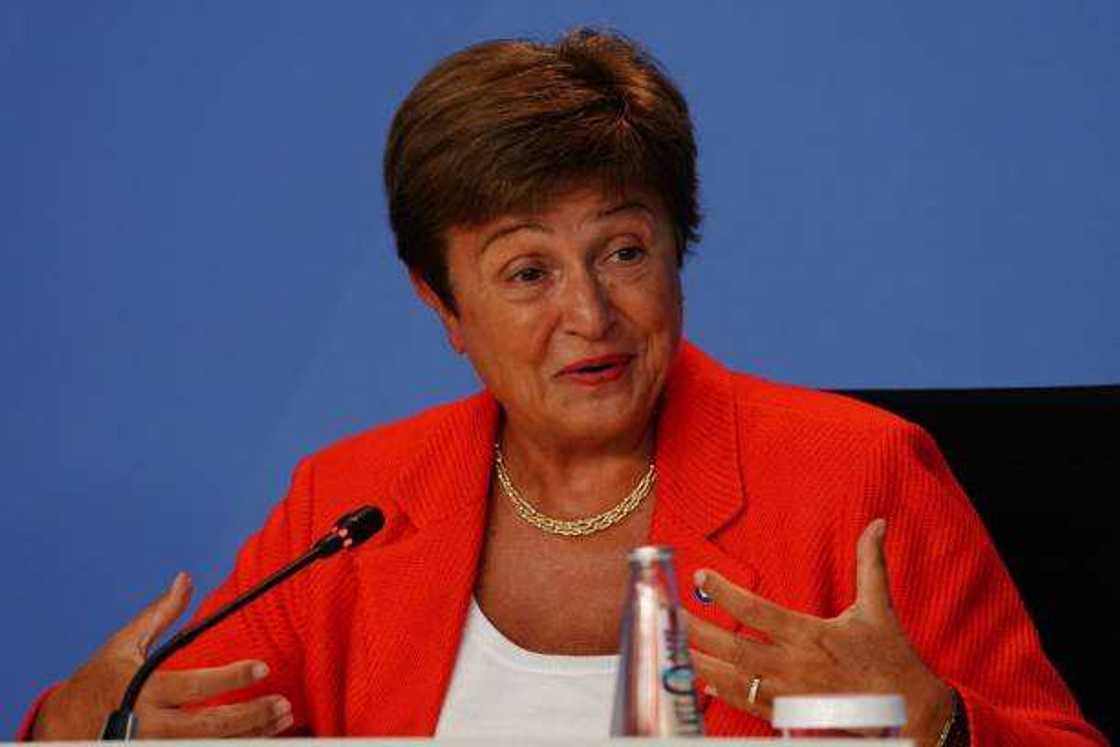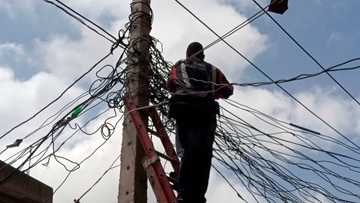IMF Predicts Nigeria's Next President to Succeed Buhari Will Spend All Revenue on Debt Servicing
- Nigeria's next president after 2023 will not only have a strong leadership skills but economic know how to navigate what lies ahead
- The International Monetary Fund has painted a very bleak tomorrow which will see all revenue generated used to service debt
- The Federal government has in its plans to increase Nigeria's debt stock to N46.63tn trillion by end of 2022
Nigeria's fiscal woes are far from over, as once again the International Monetary Fund has raised an alarm about Nigeria's piling debt.
IMF stated this in its latest Sub-Saharan Africa Regional Economic Outlook released on Monday 30, May in Abuja.
Ari Aisen in his statement during his presentation reveals that the Nigerian economy is under serious stress.

Source: Getty Images
He added that many African countries, including Nigeria risk sliding into critical debt servicing problems unless urgent actions were explored to significantly raise revenue.

Read also
Manufacturers sack over 4,400 staff in one year despite CBN intervention of over N1trn to create jobs
PAY ATTENTION: Join Legit.ng Telegram channel! Never miss important updates!
Aisen further noted that over 80 per cent of the federal government’s revenue is currently committed to debt service, a situation he described as an “existential problem” while warning it could get worst and hit 100 per cent by 2026 if not closely monitored, ThisDay reports.
He said,
“It is a reflection of low revenue. It is an existential issue for Nigeria. It is essential for macro-economic stability. It is important for the provision for social service,” he said.
Further x-raying the fiscal challenges, he regretted that as an oil exporter, Nigeria was not only unable to take advantage of the current global high oil prices to build reserves, but was also confronted by low earnings due to the subsidy on petroleum products.
Aisen added:
"With N500 billion monthly fuel subsidy payouts, he noted that the country might end up with a record N6 trillion subsidy at by year-end."

Read also
NERC set to review electricity tariffs, 6 months after carrying out a similar exercise, provides explanation
Speaking on the economic outlook for the continent, the IMF official identified key priority areas as reducing debt vulnerabilities, balancing inflation and growth; and managing foreign exchange rate pressures.
Odinkalu: Nigeria's public debt profile has tripled in 7 Years
In an earlier report, Legit.ng reported that Rights activist, Chidi Odinkalu, has said Nigeria’s debt profile has increased three times in the last seven years, that is since Muhammadu Buhari mounted the saddle as Nigeria’s president.
Odinkalu said this in a tweet but did not expatiate as he only provided an undated chat from the Nigeria Bureau of Statistics (NBS).
Odinkalu may not be an economist but available data from Debt Management Office (DMO) says Nigeria’s debt profile has soared to about N35.65 trillion recently because of increased borrowing by Buhari's government.
Source: Legit.ng


